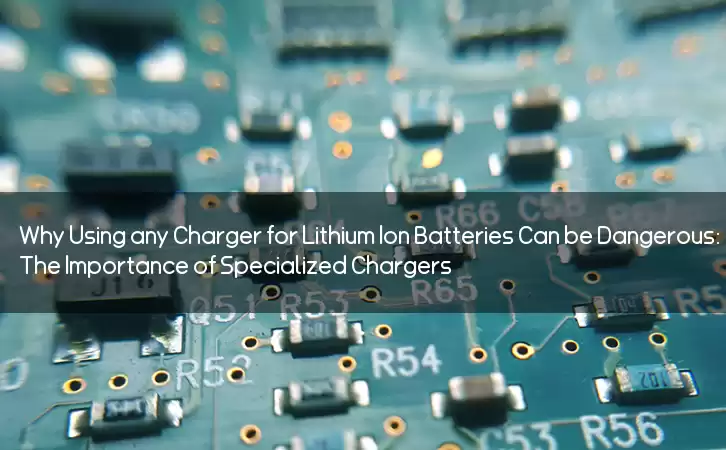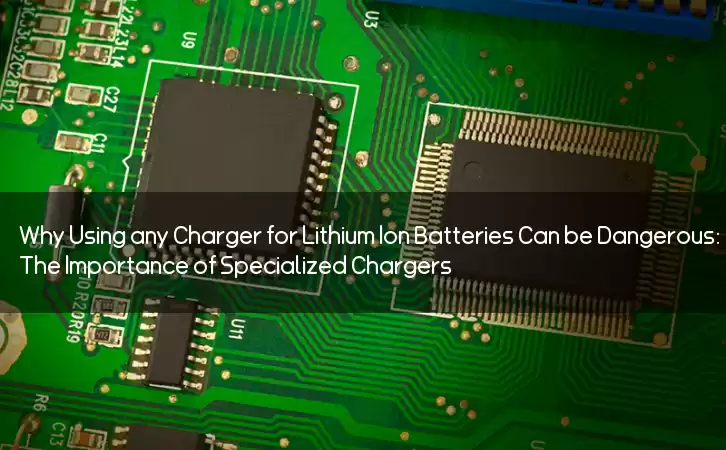Information Center
Why Using any Charger for Lithium Ion Batteries Can be Dangerous: The Importance of Specialized Chargers
Published:2023-08-30 20:34:03 Author:Green WCND Views:104Do lithium ion batteries need a special charger?

Lithium ion batteries have become an essential part of our daily lives, powering everything from smartphones and laptops to electric cars and even homes. But with their popularity, comes a common question - do they need a special charger?

The short answer is yes, lithium ion batteries do require specific charging techniques and equipment. Unlike traditional alkaline batteries, lithium ion batteries are much more sensitive to overcharging or undercharging. Overcharging can cause the battery to overheat and even explode, while undercharging can shorten its lifespan and reduce its overall capacity.
One of the essential components of charging lithium-ion batteries is a charger that is specifically designed for them. These chargers often use a carefully regulated current that slowly increases as the battery charges to prevent overcharging. They also incorporate features such as short-circuit protection and temperature monitoring to ensure the battery is not damaged during the charging process.
It is important to note that not all lithium-ion batteries are created equal. Different devices may require different voltages and currents, and as such, using the wrong charger can lead to damage or reduced performance. It is crucial to identify the specifications of your battery and select a charger that is compatible with it.
Moreover, it is not recommended to mix and match chargers between devices that use different lithium-ion batteries. This is because each battery may have its own unique charging requirements, and using the wrong charger can lead to permanent damage or safety hazards.
In addition to using a specialized charger, there are also some best practices for charging lithium-ion batteries that can help to extend their lifespan. For example, it is generally recommended to avoid using the device while it is charging as this can cause the battery to overheat. It is also best to charge the battery before it reaches a critically low level, as this can cause damage to the battery cells.
In conclusion, while lithium-ion batteries have revolutionized the way we power our devices and vehicles, they do require a specific charger and charging technique to ensure their safety, longevity, and performance. It is important for consumers to identify the specific requirements of their batteries and use chargers that are compatible with them. By doing so, we can ensure that we get the most out of our lithium-ion batteries while also reducing the risk of safety hazards.
Power Adapter Design and Customization Guide for Portable Electric KettlesI. Common Design Types for Portable Electric Kettle Power AdaptersPortable electric ke···
I. Common Design Types of Power Adapters External Independent Type (Most Common) Design: A standalone adapter (e.g., "black brick") connected to the p···
Handheld Vacuum Cleaner Power Adapter Selection GuideIntroductionHandheld vacuum cleaners have become a mainstream tool for household cleaning due to their port···
Drill Power Adapter Selection Guide.drill-container { font-family: Arial, sans-serif; line-height: 1.6; max-width: 800px; margin: 0 auto; padding: 20px; } .dril···





